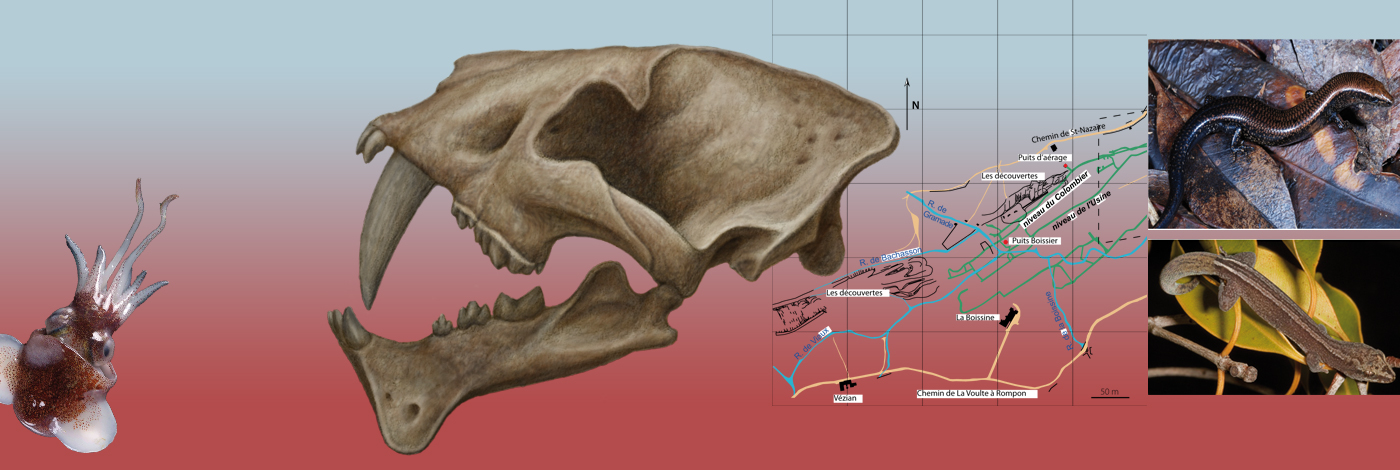
 Tome 201
Tome 201 Publié le 22 juillet 2011
L'aventure des vertébrés sur la terre fermeAmong vertebrates, the evolutionary transition from an aquatic or amphibious to a fully terrestrial life seems to have occurred potentially more than once within the clade. These events probably occurred in the Carboniferous. New selective pressures faced by the first amphibious or terrestrial vertebrates due to environmental constraints in their new environments generated drastic changes in locomotor structures, performances and strategies in vertebrates. To explain “how vertebrates moved onto land”, this volume presents a comparative investigation of locomotion, from structure to motor control, in fossil and living groups. The present volume provides an up-to-date integrative study on these, based on morphology, physiology, palaeontology, biomechanics, behavioral ecology, and neurobiology. The first paper shows how the hypotheses about transition changed through time. The two following papers show how our knowledge of locomotor structures of vertebrates suggests a possible scenario explaining this evolutionary transition. However, locomotor performance and motor control in extinct taxa can be inferred only from extensive analysis of locomotor modes (i.e., walking, trotting, running, jumping, hopping) in recent organisms relevant to the evolutionary transition from water to land. In three other papers, locomotor performances are studied through comparative approaches in fully aquatic vertebrates, in vertebrates transitorily inhabiting terrestrial environments, and in vertebrates which have definitively passed through the transition to permanently terrestrial occupation. The authors of the volume have complementary research backgrounds.
Vincent Bels and Jean-Pierre Gasc are Professor and Emeritus Professor in Functional Morphology at the Muséum national d’Histoire naturelle of Paris (France). Michel Laurin and Marc Jamon are Director of Research at the CNRS, and Sabine Renous is a former Director of Research at the CNRS; their specialities are, respectively, Palaeontology, Neurobiology and Functional Morphology. John Davenport is Emeritus Professor of Zoology at the University of College Cork (Ireland) and Adrià Casinos is Professor of Zoology at the University of Barcelona (Spain); they are mainly active in biomechanical research.